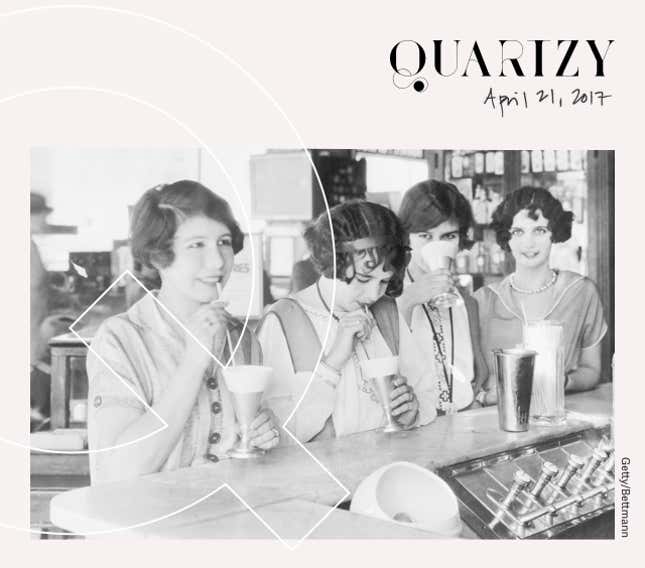
Happy Friday!
“I just want to be happy.” Lena Dunham uttered those words as Hannah Horvath, wearing the bathrobe of a sexy doctor played by Patrick Wilson in one of the more controversial episodes of her HBO series, Girls. It’s the one in season two that took place almost entirely in that doctor’s Brooklyn brownstone, where Hannah plays house over the course of two days—eating steak on the deck, drinking wine from real glasses, and winning points at topless ping-pong. I’ve been thinking about that line a lot this week, after saying goodbye to the series on Sunday night.
It was a polarizing episode—and a polarizing show—but I felt for Hannah. As a young writer grappling with her ambition, what it means to be an artist, and all the fears that come with that life, she finds herself wondering whether what she really wants is to live in a nice home with an attentive partner and a proper fruit bowl.

“I realize I’m not different,” Hannah says. “I want what everyone wants. I want all the things. I just want to be happy.”
For many of us, simple happiness can feel at once like a cop-out, a shifting target, and an unattainable goal. For Hannah, it appeared briefly in a chimera of a handsome man in a crisp white shirt with a well-appointed Brooklyn brownstone. Maybe the episode was overreaching, but that was part of what made watching Girls so great. Dunham wasn’t afraid to challenge herself—or her audience—and if it made us feel a little uncomfortable or embarrassed, well, she didn’t really care. She would just come out and say the thing anyway.
But what does happiness mean? Oh boy. Quartz’s reporters have been highly engaged with this very question, preparing a new collection of stories called the Happiness Experiment. Quartz reporter Nikhil Sonnad—a master of finding poetry in unromantic corners of the internet—chronicled the ever-changing definition of “happiness” on Wikipedia, which is the result of nearly 6,000 edits by 3,000 users, vandals, and bots since 2003. ”Wikipedia is like a Socratic dialogue on a massive scale,” writes Nikhil. “There is no abstract definition that can perfectly capture what happiness is to all people, all the time. The closest thing I’ve seen, though, is the full history of this Wikipedia page leading up its current point.”
Is happiness overrated? Some of the Happiness Experiment’s most interesting stories would suggest: Yes. Quartz’s Meredith Bennett-Smith wrote about what BS it is that women are expected to act happy at work all the time (She doesn’t, and we love her!) and management reporter Oliver Staley wrote that evolutionarily speaking, we’re not hardwired to stay happy all the time. (It would have been bad for survival.)
Oliver pointed to a paper co-authored by the Nobel Prize-winning psychologist Daniel Kahneman, who demonstrated that humans experience pain more acutely than pleasure, making it a more powerful engine for change—as anyone who has worked through a difficult breakup or left a terrible job could attest.
Darrin M. McMahon, the author of Happiness: A History says the wisdom of the ages would advise anyone feeling down to “consider digging a little deeper into the causes of your suffering and doing a little spiritual heavy lifting. As the coaches like to say, no pain, no gain.”

What’s that Unicorn Frappuccino hiding? Quartz food reporter Chase Purdy asserts that Starbucks’ new limited-edition pink-and-blue Unicorn Frappucino—and the trend of rainbow-laden bagels, toasts, and lattes it follows—represents something darker than its Lisa Frank palette would suggest.

“In a normal world, the mere color of our foods shouldn’t be indicative of the economic stressors pinching worldviews and pocketbooks,” Chase writes. “But then, we live in a time when baby-boomer populists in the US and Europe are busy installing politically incorrect leaders whilst tearing away at the fabric of globalization; jobs that allow us to buy these rainbow treats are disappearing to robots; and perhaps even the new technologies that promise virtual escapism from the madness all around us… So hurry and find solace where you can in the culinary response to Western society’s radiant decay—a slow-burn of economic optimism into frayed, sugar-laden despair.”
On second thought, make that a flat white.
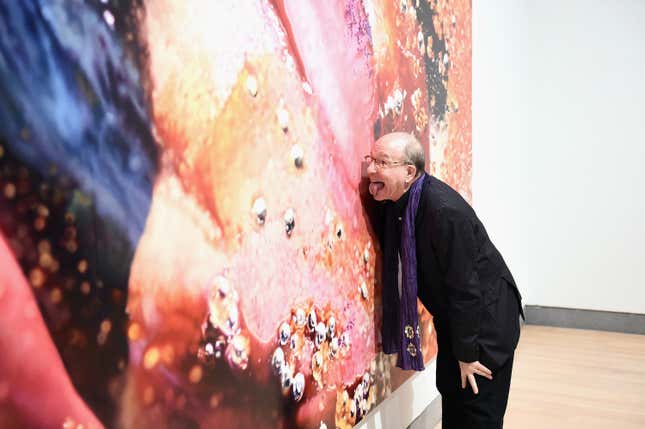
A portrait of the critic as a young man. New York Magazine art critic Jerry Saltz wrote this week about his early life as a “failed artist.”
His evocative personal account recalls artistic flourishing, smoking in diners, sleeping on the floor, and “feeling my imagined world and the external one merging in things that I was actually making.”
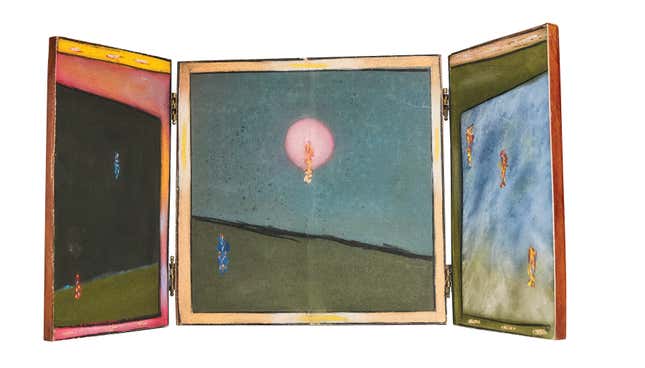
It’s crushing when he writes of the fear that made him quit his artistic aspirations. But Saltz’s story is not just that of a failed artist; it’s also one of a successful critic. In his later-life calling, he eschews cynicism in favor of generosity, and displays a remarkable—and unusual, for a critic—empathy. “I want every artist, good and bad, to clear away the demons that stopped me, feel empowered, and be able to make their own work so we can see the ‘real’ them,” he explains.
And when Saltz evaluates his own long-lost portfolio and invites his wife, New York Times art critic Roberta Smith, to do the same? Just read it.
Have a great weekend!
[quartzy-signature]
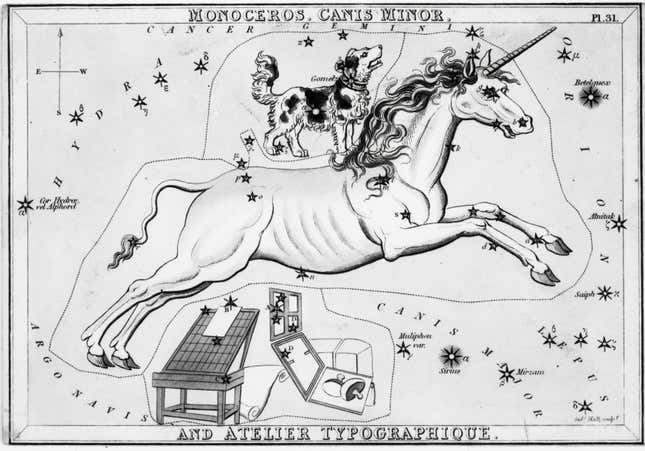
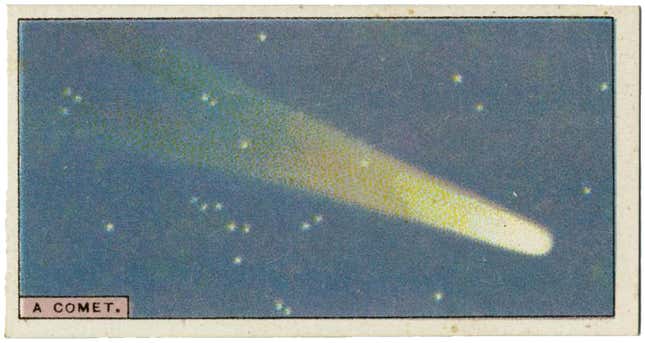
Meteors! This weekend will be primetime for viewing the Lyrid meteor shower—the result of particles left behind by a comet called Thatcher, which look like falling stars to those of us on earth. The Lyrids have already started, but late tonight and early Saturday morning is when they’re expected to peak. In the northern hemisphere, Quartz’s Akshat Rathi advises to keep an eye on the sky between 10pm and dawn, when the constellation Lyra, for which the shower is named, is rising. A waning crescent moon should make this weekend especially good for star-gazing.



